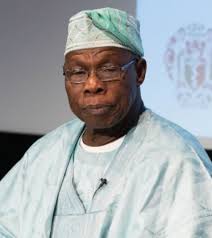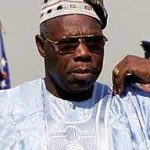It was last wcek that the Nigerian Labour Congress (NLC) again reminded Nigerian people about the anti-people content of the ‘reform’ that the Obasanjo regime has been implementing over the past seven years. The reminder came in the wake of the announcement that the authorities will begin the issuance of letters of retrenchment to thousands of workers this week.
Over the past couple of weeks, I have been editing a book of my writings over the past twenty years or so, and I wa£ so happy to discover a piece that I wrote, I think in 1986, which I had titled “IMPERIALISM’S PRIVATISATION PANACEA’. It was in response to the emergence of the Structural Adjustment Programme (SAP) regime in several countries around the African continent I had argued therein that the retrenchment of working people (what the technocrats working at the behest of international financial institutions and their dogma call ‘rijpit-sizing’), has become a central plank of the policies sold around the world, as part of a concerted programme of attacks on the social gains of the working people.
The attack on the public service is done in order to move the locus of development in the direction of the private sector, as part of an ideological and economic baggage of strengthening capitalist entrepreneurs, locally and internationally.
But since the local bourgeoisie is very weak in practically every African country, the rich pickings are left for the imperialist countries and their transnational corporations. The countries implementing these policies gradually begin a process of erosion of their sovereign power to make decisions about socio-economic and political processes in their societies. They become an appendage of imperialism.
These were the conclusions that I drew in that article from so many years ago, but which the passage of time have validated in so many ways today, including the recent baggage of retrenchments of working people that the anti-people, and neo-colonial regime of General Olusegun Obasanjo has begun to implement this week, according to the Nigerian media.
One of the more poignant critiques of the process of ‘right-sizing’ the jobs of the public services in Africa, is from the cultural perspective. The operatives of the imperialist financial institutions who author these policies come from individualist cultures of capitalism, where, especially after 1945, the state provides some social net for the poor. We do not have social safety nets in our neo-colonial societies. So the individual who works becomes responsible for a chain of relations in towns and villages.
That individual contributes to his mosque and church, his neighbourhood and home town associations and he shops in a neighbourhood. The authors of the programmes of retrenchment of workers in Africa do not factor these into their reckoning, and so end up destroying far more than thfcy envisage with their programmes. Unfortunately, society suffers the consequences and the capitalist system that they hope they can kick-start remains a grand illusion.
The Nigerian situation in the past few years has been characterised by the entrenchment of a peculiar form of crony capitalism, which has worked for a select team of individuals around President Obasanjo himself, whose wealth has increased but whose impact in the realm of capitalist enterprise, productive engagement with the economy and the development of the productive forces has been very marginal, at the very best The intellectuals driving these processes are far more enamoured of what the international institutions of the imperialist countries say about them than in the positive impact they can make upon the Nigerian economy and people; as a matter of fact, they owe their raison d’etre to these foreign institutions and not to any fidelity to the Nigerian people. This is why they buy in so enthusiastically to programmes that deepen the suffering of the Nigerian people.
Although the reigning mantra remains a private-sector-led economic development process, the truth as Africa’s history has taught is that because of the factors of underdevelopment associated with the plunder of colonial rule and neo-colonialism, the stale must still play a role in the development process in our societies. The private sector is weak and often dependent on the far more developed capacities of the imperialist system. This is why the state strategically directs investments to help the struggle against underdevelopment; unfortunately, it is this capacity that neo-liberal capitalism is crippling in Nigeria and all around Africa. The consequences are going to be with us for years to come. It is therefore imperative for the popular social forces of our society to begin to actively posit an alternative platform to the unpatriotic policies that Obasanjo and his economic team are implementing, which are the basis for this regime of massive retrenchments of working people in the public sector at a time when the real sector of the economy is also lay ing off workers and a catastrophic deindustrialisation has taken grip of our country, as the recent figures of the Manufacturers Association of Nigeria (MAN) have shown.
Obasanjo is also aware that his policies are unpatriotic and are against the best interest of the Nigerian people, which is why he talks each day of forces that are determined to truncate them. But truncate them we must, for the sake of our present and future. A regime of retrenchment of workers, closure of factories, making a few cronies own our national patrimony must not be allowed to survive; those policies should be buried with the memory of the administration that instituted them once a genuinely patriotic government gets the democratic mandate of the Nigerian people in May 2007.
Travels in the Niger Delta states In the past few weeks, I have had the opportunity to visit Rivers State for the first time, and this week, I attended a one-day workshop in Yenagoa, the Bayelsa State capital. It is the Hausa people who say that travel is the key to knowledge ‘Tafiya mabudinilimi. These trips have brought into very sharp focus for me the peculiar realities of that part of our country.
The Niger Delta region’s terrain is a very challenging one, to put it mildly. The people evolved a peculiar existence with nature over millennia that were disrupted by the discovery of huge reserves of petroleum resources. Unfortunately, the combined efforts of the activities of the oil companies, an insensitive state and an irresponsible elite, led to a radicalisation of the local people in response to the underdevelopment of the region. While this is sfill the basic picture, it is also true to say that in recent years, far more money has devolved to the states and local authorities in the region.
Of course, the people of the region deserve much more from the Nigerian state and the various state governments of the region. I noticed that given the swampy nature of the terrain, construction is far more expensive, because there must be reclamation, sand filling, a layer of chippings before an asphalt overlay can then be put on the ground to achieve a good road project The cost implication can be very high indeed.
However, in Bayelsa State, I found a very disturbing picture of neglect of meaningful investment in human car pacity and basic infrastructure. The roads were constructed without any thought for the expanding population of vehicular transport, and already on the main thoroughfare in Yenagoa, traffic builds up during the busy hours of the day. I don’t want to sound disrespectful at all, but there is not much to see for all the money that the state gets every month.
The young people are all over the town managing to survive on odd jobs and I get the feeling that the criminal element must be a very strong part of that process, because there is not much that can be done legitimately for a lot of people. This is reproduced all around Nigeria anyway, but I believe that plight of the people of the Niger Delta region is a major indictment of the uncaring and unpatriotic attitude of the ruling class in Nigeria It is certainly unacceptable that the basic needs of people will be so neglected, while members of the elite will be outdoing themselves in the brand of four-wheel vehicles they can display on badly constructed roads. It’s all so grotesque, but the painful truth is that all patriots must speak for the people of the Niger Delta as much as we speak up for the conditions of the mass of the poor all around the country. I think the South African trade union’s slogans of old are very poignant in this circumstance: ‘An injury to one is an injury to all.’ The unending pains of Iraq I travelled very extensively in Iraq between September and October 2002, just about six months before the illegal, unjust and unacceptable Anglo American invasion of March 2003. Amongst other places, I visited Baghdad, Babylon, Samara, Najaf and Karbala to name a few. It struck me then just how proud the Iraqis are about the eminent history of their country, its succession of civilisation: Assyrian, Babylonian, Islamic and so on, all built in the context of the fertility of the two great rivers that continue to water their country, the Tigris and the Euphrates. Iraq has the world’s oldest nationalism; understandably for the country that is the origin of civilisation.
But when American imperialism invaded that beautiful country, it decided to divide the country along lines of confession; so today, the American illegal’ occupiers of Iraq have reduced the country to Shiites, Sunnis and Kurds or Christians. These divisions are manipulated and a regime of distrust sown amongst these components of the Iraqi people. An undeclared civil war takes place at these American-constructed divides, while the American transnational companies are busy stealing the oil resources of the country. The puppet regime the American occupiers installed behind a facade of democratic elections lacks legitimacy and real effective control of the country.
The CNN reporter from Baghdad, Nik Robertson on Monday, 10th July, 2006, described Baghdad in a despatch as a city that was “once a confluence of culture” that has become a sectarian island of fear. But this was not an accident One of the main but undisclosed reasons for the invasion was to destroy the capacities of the only Arab country that could strategically challenge the hegemony of Israel in the Middle East The main architect of the war is the war criminal now heading the World Bank, Paul Wolfowitz.
Recently, axis of logic dot com, also reported a systematic assassination of scientists all over Iraq, which it claimed was part of an elaborate process of ensuring that Iraqi scientists who refused to go to work for the United Steves/ but chose to stay behind in Iraq, do not survive long enough to pass their knowledge to newer generations who might still harbour the hope of developing the independent capacities of Iraq. The website reported that the assassinations are being set up by the intelligence agencies of the United States and Israel. The Anglo-American invasion of Iraq was carried out against international legality; it has resulted in numerous war crimes by the occupying forces, and has destroyed the fabric of that lovely country. Unfortunately, the world is run on the basis of the injustice that allows the bullies that have superior economic, political and military power to do as they please. Otherwise, George Bush and his closest collaborators ought to have their day at the International Criminal Court for the crimes they have committed against humanity with the invasion and occ pation of Iraq and the unending pains of that land.


